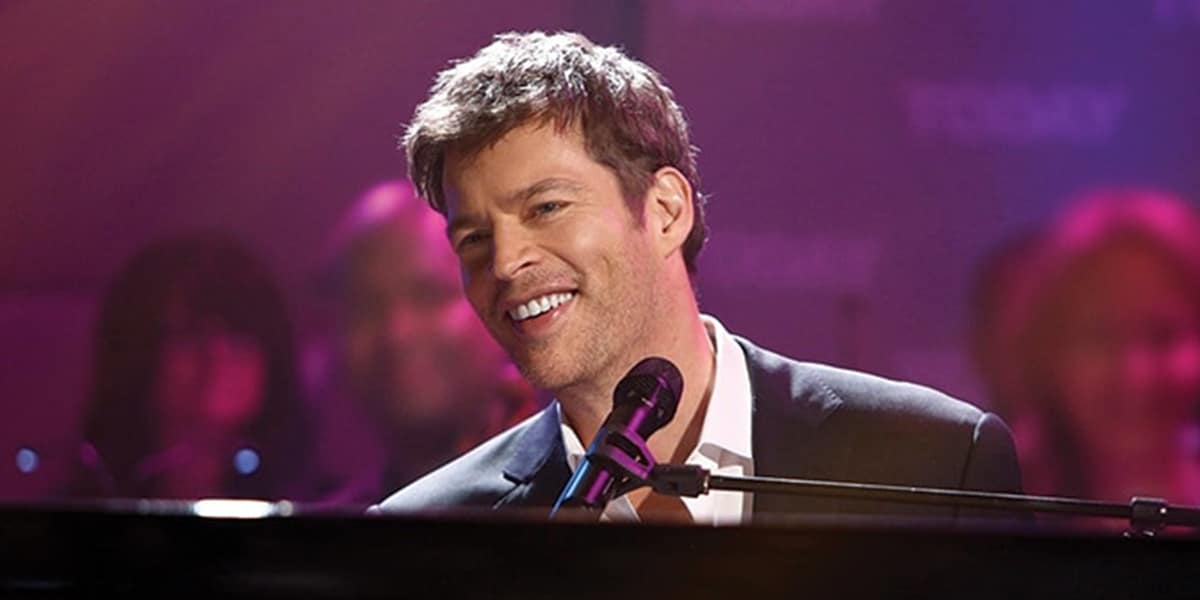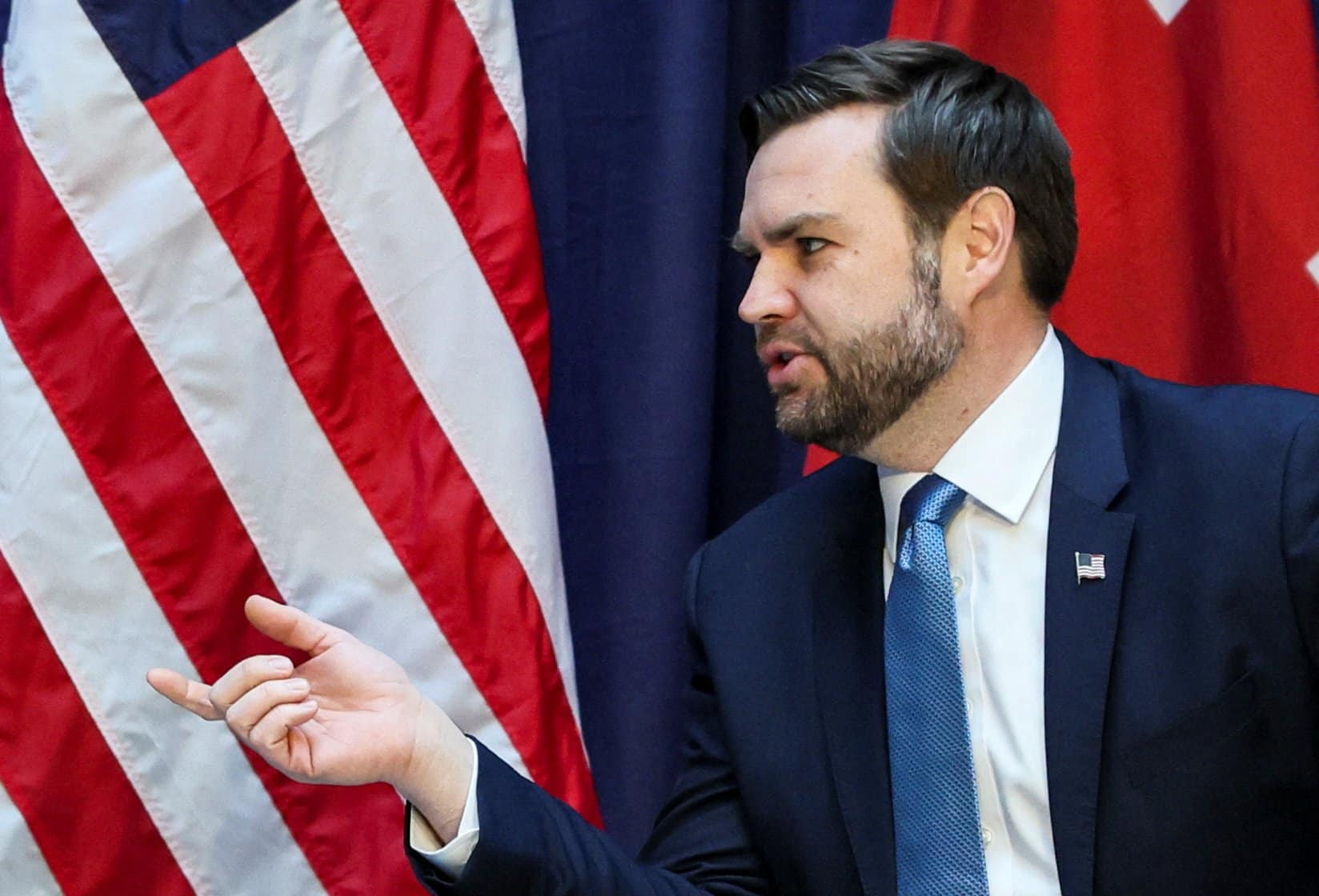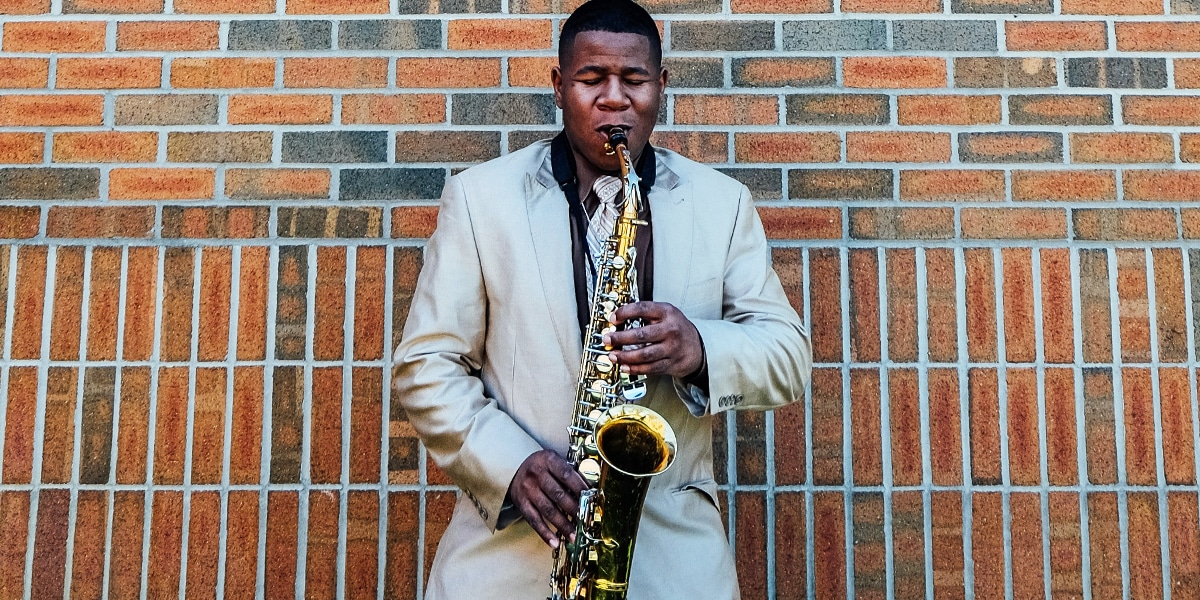This world-famous actor and musician has a driving force: his Catholic faith.
He’s known to millions for his music, acting, and now as host of a nationally syndicated daytime variety-chat television show simply called Harry. St. Anthony Messenger interviewed the star this past February at the Four Seasons Hotel in Beverly Hills, California. Joseph “Harry” Fowler Connick Jr. is named for his father, nicknamed Harry, but who was named for St. Joseph. Connick Jr. speaks with a soft accent and a conversational style.
Connick, winner of Grammy and Emmy awards, has sold over 28 million albums. A child prodigy, when he was nine years old he performed a Beethoven prelude. As an adult he’s been on television, in movies, and on Broadway. He’s a husband to Jill and the father of three daughters, Georgia, Sarah Kate, and Charlotte.
Many know that Connick is Catholic, but they might not know that he wasn’t baptized until he was 14 years old. Harry Sr. is still a devout Catholic and his mother, Anita, was Jewish. They decided that they would let Connick and his older sister, Suzanna, now a psychiatrist and internist in the army, choose their own faith. Subsequently they both became Catholic.
Formed by Jesuits
When Connick was 13 his mother died of ovarian cancer. Her death was, understandably, the most difficult moment in his life. He recalls that his extended family on his father’s side and the Jesuits at his high school were a great help to him.
Once Connick decided to embrace Catholicism, Father Nick Schiro, SJ, accompanied the young teen through the RCIA program and baptized him. New Orleans Archbishop Philip Hannon confirmed him. Connick recalls: “It was a very proud day. I was going to Mass every day at that point. I was holding on to everything I could to get me through those hard times.”
Bob Fecas taught freshman theology. His unorthodox way of teaching impressed Connick, who calls it an “OK to ask anything class.” Fecas taught students the value of thinking things through, searching, and asking questions. Besides Fathers McGinn and Schiro, he liked the young “cool priest,” Father Eddie Gross, who played the guitar and sang “La Bamba” all the time. Their friendship continues to this day.
With all this Jesuit influence, it’s easy to see why Harry Connick Jr.’s favorite saint is St. Ignatius of Loyola. Connick says that he learned two lofty ideals from St. Ignatius that he tries to live every day: to let your light shine in the world by helping people and to do the small things well.
Harry
For years people asked Connick to consider a television show, but the idea of “parking in one place and doing the same thing every day” didn’t appeal to him.
Then he began working closely with two brothers, Justin and Eric Strangel. They are television producers who also wrote comedy for The Late Show with David Letterman. They brainstormed and came up with the idea of a syndicated show that, as Connick described it, “would be my show, with my band, a show that would be aspirational and inspirational, to have great guests who weren’t necessarily celebrities. I wanted to find people who had amazing stories to tell that could make the world a better place.”
Harry is produced in New York. The show premiered in 2016 and starts its second season this month. The format consists of one segment called “Leading Ladies” in honor of the amazing women in his life, from his grandmother to his daughters. Women from across the country and from all walks of life come on the show to tell their transforming stories.
Another segment is called “I Got This,” where Connick shows up at someone’s house, maybe that of a single mom or somebody who is working two jobs. “I told the producers, I don’t want to know who I’m meeting, but I want you to find people who need help. Don’t want them to know I’m coming and I don’t want to know where I’m going. It’s completely unscripted. Then I take over her job for one day, whether it’s running a nail salon or teaching a square-dancing class, and send her off to get a break for the day. I tell her, ‘I got this.'”
Another segment might feature kids who dance or play instruments, like 14-year-old guitarist Brandon Niederauer (School of Rock: The Musical). How Brandon and the band’s bass player Jonathan Du Bose Jr. started playing off each other is amazing to watch.
Connick and his band have been together for many years. They understand each other so well that they can respond musically at any moment. They know and hope that children might watch it. He says this awareness is evident by the many subtle messages in the show, for example, “Kids might think, ‘Maybe if I work at something tactile, that requires a lot of practice, effort, and discipline, maybe I can accomplish something like these musicians, too.'”
Connick continues: “I find that wanting the good for people on the sshow gives me an incredible feeling and makes me approach my show with humility and respect. The people on the show are divorced, widows, they have children in the hospital, they can’t pay their rent, maybe their houses burned down.
“They are all there, and we are them, too. I feel like I have found something in the show that allows me to try to do important things without mentioning a word.”
Connick’s favorite moment on the show thus far was the day when Connick walked on the set to be greeted by Al Roker of TODAY who announced, “I’m hosting Harry today! ” He remembers: “They started bringing out people I know, including my wife and two of my daughters; my third daughter was away at college. But then she walked out, and I lost it. I couldn’t believe she came for that; it was a very big deal for me.”
The Little Things
When Connick was a child living in New Orleans, music was everywhere. His parents loved music and played records all the time, from popular to classic. Connick’s response to music was deeply emotional. “I wanted to be a part of that world because I knew I had the potential to learn and I had talent.”
When you combine a passion for something with the accessibility of it and have your family’s support, it makes for a perfect storm for somebody like me. When you add the educational aspect to the emotional, combining the craft and the technique, one feeds off the other.”
Today Connick is a man almost driven to get the small things right. “When I am composing music,” he says, “I write out every single note—so when you watch my show and you hear my band play, they are reading music.”
It’s amazing how much more fulfilled I am—how much more pleasantly the days go by.
It takes “hours and hours and hours,” he says. “That’s me. I wrote a hundred pieces of music, from three to 10 minutes long, before we started the show so we’d have enough to get going—notes for the trumpet, the saxophone, trombone, bass part, drum part, guitar, every single note. Doing this keeps me grounded and focused on doing everything well.”
Connick’s philosophy of music for young people who may not have access to arts programs that have been cut or underfunded in recent years is encouraging, focusing on the small things. “The good news is that there is a lot of access to information and music education outside of school. You can pick up your phone and watch YouTube videos and other online sources for music education and learning.
“Even if programs are cut, the fundamental values are the same. The self-discipline is the same.” Work and practice are what it’s all about. “I tell young people, make sure you learn as much as you can about your craft on your own. Go to the library. Pick up your phone. Do the research, listen to the recordings, transcribe the solos, do what you need to do on your instrument. This is how you become a musician.”
Man on a Journey
Connick met his wife, Jill, then a model, in Los Angeles in 1990. For Connick, it was love at first sight. He recalls, “She was from Texas, she had a firm handshake, she drank a beer, and she seemed like a fun person. That was it. Twenty-seven years later, here we are.” Connick says he and Jill take their marriage very seriously. In the four years they knew each other before their wedding in New Orleans’ St. Louis Cathedral, they became good friends. They cooked together, went to movies, talked politics.
“We are truly interested in each other,” he explains. “I respect her immensely. She is half of me; we are two halves that make a whole. I really buy into that idea. It is the foundation upon which our marriage is based.”
His philosophy as a parent is simple: “It wasn’t always about telling my daughters, ‘Oh, look how pretty you look today’—it was never about that. It was about telling them ‘you’re smart’ or ‘what an interesting perspective you have.’ That’s how my mother and father raised my sister and me, and I think it helps instill confidence in children, for their sake and for that of others. “
Connick isn’t comfortable talking about his family’s religion publicly, but he will tell you that his three daughters were baptized and raised Catholic. Today, like Harry and Jill, they are on a journey. As he explains it, “We’re trying to understand more deeply the things that we think are important.”
Doubting Thomas?
Connick knows that people have been interested in him as a Catholic since he began performing, and the question about his faith is brought up in interviews all the time. Yet he admits, “I’ve struggled as a Catholic and for years I’ve had trouble admitting this. I don’t think I ever intended to say I was a Catholic in public—not because I am ashamed of it; it’s something I am proud of.
“But I am a musician. I am an entertainer. People send me prayers and come up to me to thank me for being a good Catholic, and I started to feel: ‘Wait a minute! Wait a minute! I’m trying my best here but as a guy who was raised with a Jewish mother and a Catholic father! I have a lot of stuff to figure out!'”
Connick chatted recently with Cardinal Timothy Dolan of New York about his faith. “Your Eminence, I’m trying to figure this out. I miss Mass, I question things, my dad calls me Thomas all the time—’How you doing, Thomas?’—because my dad is very, very strong in his faith and I have these doubts.”
Cardinal Dolan replied, says Connick, “Have you ever thought about the people that Jesus hung out with? Then look at Paul; he was a tough son of a gun. Those first Christians weren’t exactly perfect, either.”
Connick says: “We all want to know what our purpose is outside the specifics of our vocation, like, what are we doing here? I want to be a good husband and a good father, but is there a bigger picture here than just trying to be the best entertainer I can be? Maybe my particular purpose isn’t to be the perfect Catholic but to do the best I can.”
All In
Right now it’s an exciting time filled with some new creative challenges for Harry Connick Jr., and he likes it that way. “I like walking a tightrope, which is why I practice really hard so that when it comes to the show it’s completely unrehearsed and spontaneous.
“I need to be able to ask someone questions in front of an audience that’s going out to millions of people and make them feel good,” he says, almost matter-of-factly.
“I have to self-edit in real time and ask compelling questions that will evoke the best answers, while keeping an ear on the music.” But it’s a thrill: “I love letting people shine. Whatever I am doing, creativity means there are a lot of different cylinders going at the same time.”
It comes back to the twin principles he learned from St. Ignatius of Loyola: let your light shine and do the little things well. “What matters is being present in the here and now,” he says.
With time and experience, Connick learned to live in the present. “I was rushing from one thing to the next interview or event.” Now he’s more intentional, looking for even a small connection with the people who come to him. “It’s amazing how much more fulfilled I am, and how much more pleasantly the days go by. It’s a quest to be better at this all the time, and it’s a great place to be.”








